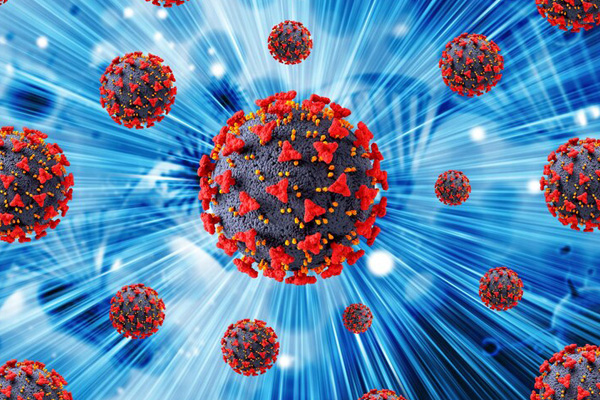- May 3, 2024
- Mubarak Medical Complex
- Comment: 0
- Uncategorized
Irresistible sicknesses can spread through different means, contingent upon the particular microorganism and its method of transmission. Here are a few familiar ways irresistible illnesses spread:
1.Direct Contact: This happens when a tainted individual contacts someone else, moving the irresistible specialist straightforwardly. Models incorporate kissing, contacting, or sexual contact.
2.Roundabout Contact: For this situation, the irresistible specialist is passed from a contaminated individual to an item or surface, which is then moved by someone else, communicating the microbe. Models incorporate contacting debased surfaces like door handles, tables, or sharing polluted utensils.
3.Airborne Transmission: A few microorganisms can go through the air by means of beads when a tainted individual hacks, wheezes, talks, or relaxes. These drops can be breathed in by others close by, prompting disease. Models incorporate the seasonal infection and tuberculosis.
4.Vector-borne Transmission: Certain infections are communicated through the nibble of vectors like mosquitoes, ticks, insects, or flies. These vectors can convey irresistible specialists starting with one host then onto the next. Models incorporate jungle fever (sent by mosquitoes) and Lyme illness (communicated by ticks).
5.Waterborne Transmission: Microorganisms can defile water sources, prompting the spread of illnesses when individuals ingest or come into contact with the sullied water. Models incorporate cholera and giardiasis.
6.Foodborne Transmission: Defiled food can convey microbes, which can then cause sickness when devoured. Inappropriate food taking care of, stockpiling, or readiness can prompt the spread of foodborne infections. Models incorporate salmonella and E. coli contaminations.
7.Vertical Transmission: A few irresistible specialists can be sent from a pregnant lady to her hatchling during pregnancy, or during labor. Models incorporate HIV and rubella.
8.Zoonotic Transmission: Illnesses can be communicated from creatures to people. This can happen through direct contact with creatures, utilization of defiled creature items, or openness to creature natural surroundings. Models incorporate rabies and Ebola.
Forestalling the spread of irresistible sicknesses frequently includes measures, for example, inoculation, great cleanliness rehearses (like handwashing), appropriate food and water security, vector control, and general wellbeing mediations.
Forestalling the spread of irresistible illnesses includes a blend of individual cleanliness rehearses, general wellbeing measures, immunization, and natural control. Here are a few key procedures:
1.Inoculation: Antibodies are one of the best ways of forestalling irresistible sicknesses. By invigorating the resistant framework to create antibodies against explicit microbes, immunizations can give insusceptibility against illnesses like measles, polio, flu, and Coronavirus.
2.Hand Cleanliness: Washing hands with cleanser and water for something like 20 seconds, particularly in the wake of utilizing the restroom, prior to eating, and subsequent to hacking or wheezing, helps eliminate microbes and diminish the spread of contaminations.
3.Respiratory Cleanliness: Covering the mouth and nose with a tissue or elbow while hacking or wheezing can assist with forestalling the spread of respiratory drops containing irresistible specialists.
4.Social Separating: Avoiding others, particularly in swarmed or encased spaces, decreases the gamble of one individual to the next transmission of irresistible illnesses, especially respiratory contaminations like Coronavirus.
5.Wearing Veils: Wearing facial coverings, particularly in circumstances where social separating is testing or in regions with high transmission rates, can assist with decreasing the spread of respiratory beads and safeguard both the wearer and others.
6.Cleaning and Sanitization: Routinely cleaning and sanitizing often contacted surfaces, like door handles, ledges, and electronic gadgets, helps kill microorganisms and forestall their spread.
7.Safe Food Taking care of: Rehearsing legitimate food handling measures, like washing hands prior to dealing with food, preparing food to the fitting temperature, and putting away food appropriately, lessens the gamble of foodborne diseases.
8.Safe Water and Sterilization: Guaranteeing admittance to clean drinking water and satisfactory disinfection offices forestalls waterborne infections like cholera and loose bowels.
9.Vector Control: Executing measures to control vectors, for example, mosquitoes and ticks, through techniques like insect spray splashing, mosquito nets, and natural administration, lessens the transmission of vector-borne sicknesses like jungle fever and dengue fever.
10.Wellbeing Schooling and Advancement: Giving data and instruction to people in general about the significance of immunization, hand cleanliness, respiratory manners, and other preventive measures supports conduct that decreases the spread of irresistible sicknesses.
By executing these preventive measures at both individual and local area levels, the spread of irresistible illnesses can be essentially decreased, safeguarding general wellbeing and saving lives.


